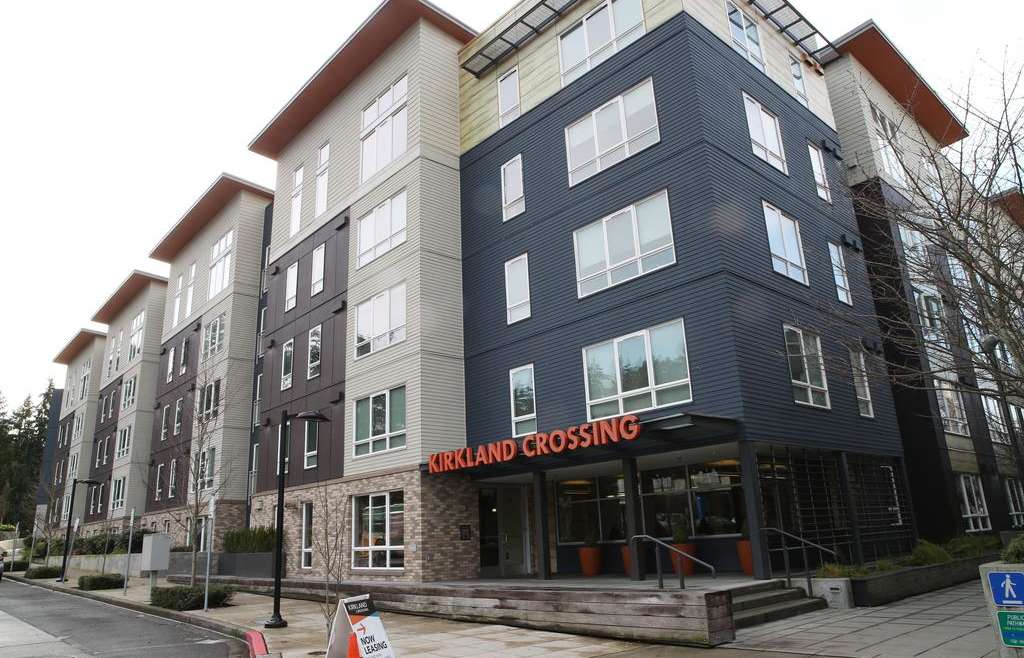“As the pandemic recedes and the moratoriums end, people may be surprised (shocked) at the “rent increases” that many areas around Seattle have experienced in the past couple of months. Several main issues exists here – one, that in many areas (especially in Seattle) rents were Decreased in many neighborhoods due to the pandemic shutdowns and violence and renter exodus from Seattle core. Secondly, during the moratorium rents were artificially held down over the past two years and now there is some “catch up” happening. Thirdly, the market is still driven by Supply and Demand….and the supply of new housing was slowed, hindered during the pandemic and still is hindered with material and labor shortages.
How much do each of these factor in these current rent increases?….no one really knows….”
Apartment rents across most of the Puget Sound region have surged with the year-over-year increase hitting a staggering 33% in one market, Kirkland, and 21% in Seattle. Redmond and Bellevue weren’t far behind.
The big boost in Kirkland puts the submarket’s median one-bedroom monthly rent at $2,410, well ahead of second-place Redmond’s $2,230 and Bellevue’s $2,190. Seattle’s median was $1,820 in February, according to a new report from leasing platform Zumper.
Seattle appraiser Brian O’Connor, who advises multifamily developers, said it’s hard to know precisely what occurred in Kirkland but thinks it’s another effect of Covid-19, which led to a statewide eviction moratorium that included a prohibition against rent hikes on existing tenants until last summer. Now the market has strengthened.
“We’re right back where we were pre-Covid,” said O’Connor, who added a key question is, 33% relative to what? He thinks it’s relative to what contract rents were when they were frozen two years ago. Another question: How much of a rent hike is due to what he called “the Covid catch-up” and how much is actually new rent growth? He said nobody can really answer that.
“It’s a very, very confusing time to understand rent increases,” he said.
A Kirkland-specific driver could be the fact that Kirkland software engineers are among the best paid in the country. That’s according to Blind, a social network for employees in tech and other industries. Kirkland has the highest average total compensation in the Pacific Northwest and is the sixth-best paying city in the United States.
While Kirkland had the steepest year-over-year median rent increase, the other three submarkets had significantly higher month-over-month gains, with Seattle and Redmond seeing 5.2% increases and Bellevue logging a 4.8% increase. Kirkland’s was 0.4%.
Tacoma, which is in the midst of a multifamily housing development boom, saw the median rent decline 2.1% over the last year to $1,400, according to Zumper.
Elsewhere in the region, rents increased just 1.2% over the last year to $1,630 in Renton, while Kent saw a 6.6% jump to $1,450. Bremerton saw a sizable annual gain of 12%, to $1,400. That’s also the median rent in Everett as well, up 9.4%. Median rent in Bellingham increased 10.7% to $1,350.
Among the other markets, Lakewood saw a 14.8% yearly increase to $1,240, the second-lowest rent among the markets in the Zumper report, while the least-expensive market, Oak Harbor, saw rents go up 10.4% over the last year to $1,170.
By Marc Stiles – Staff Writer, Puget Sound Business Journal
Apr 4, 2022, 5:51pm EDT

